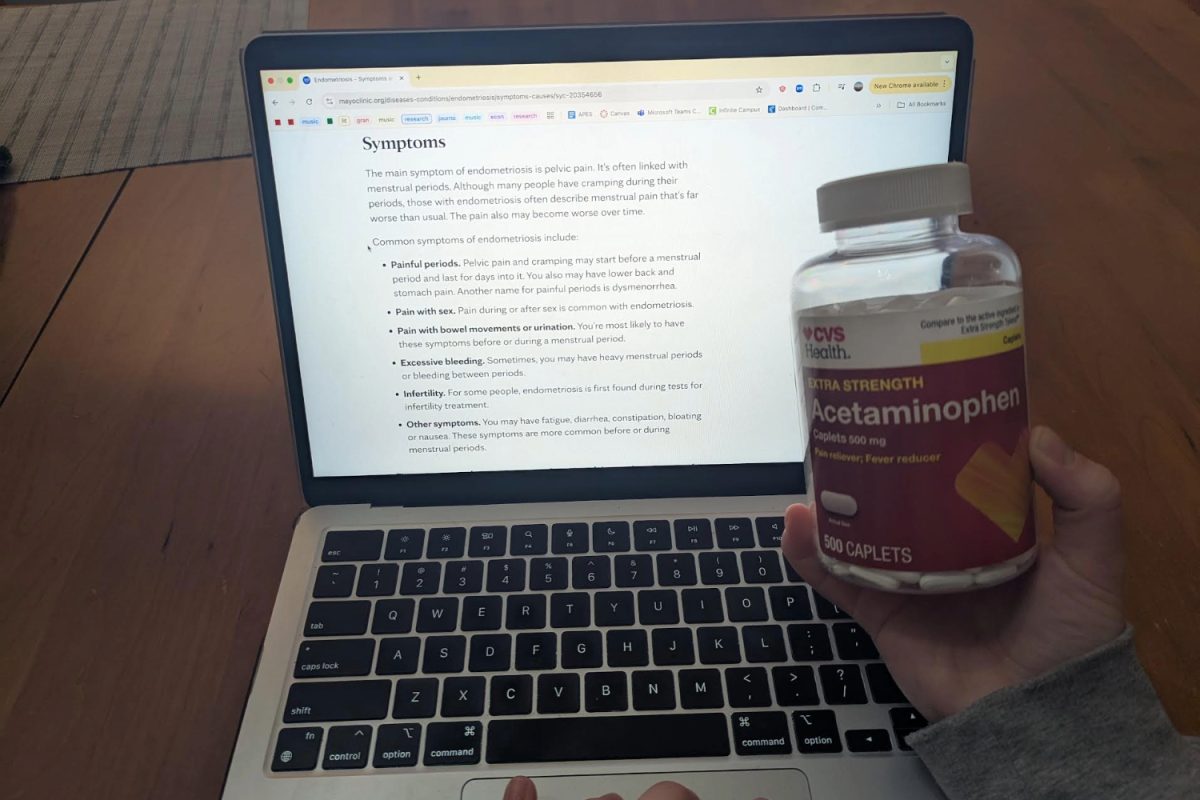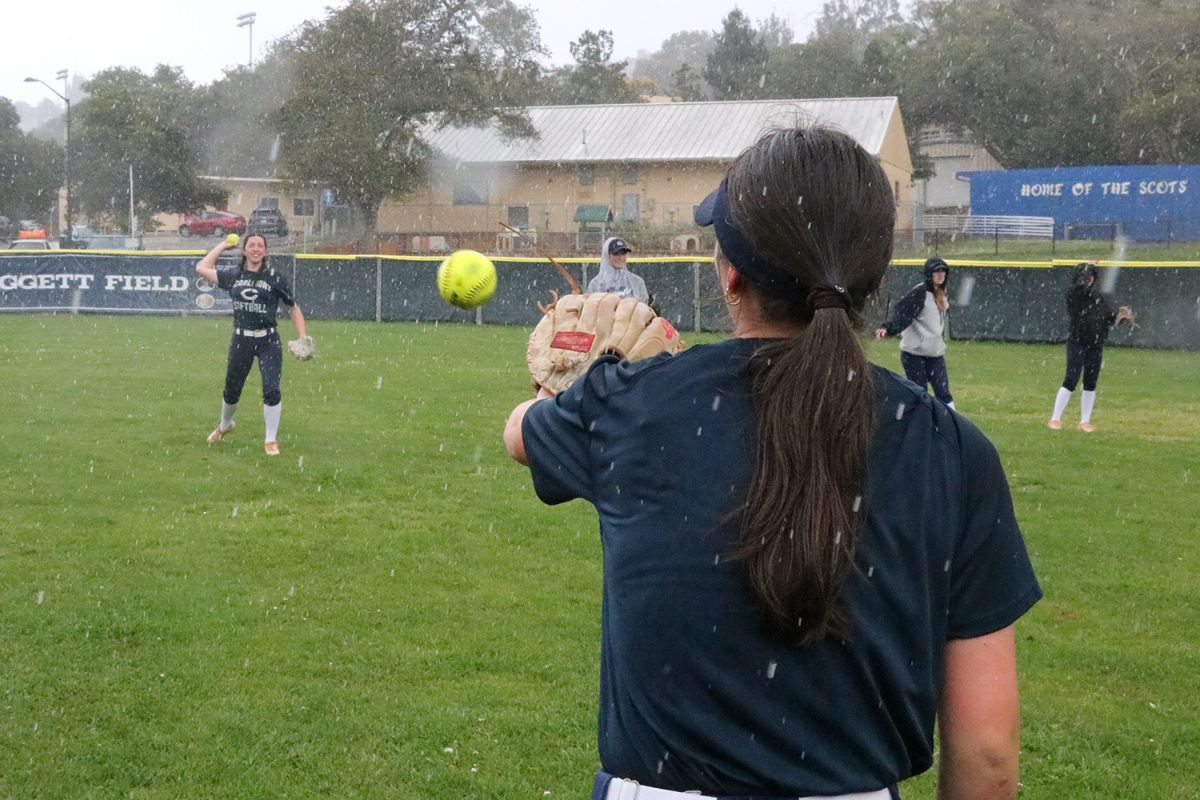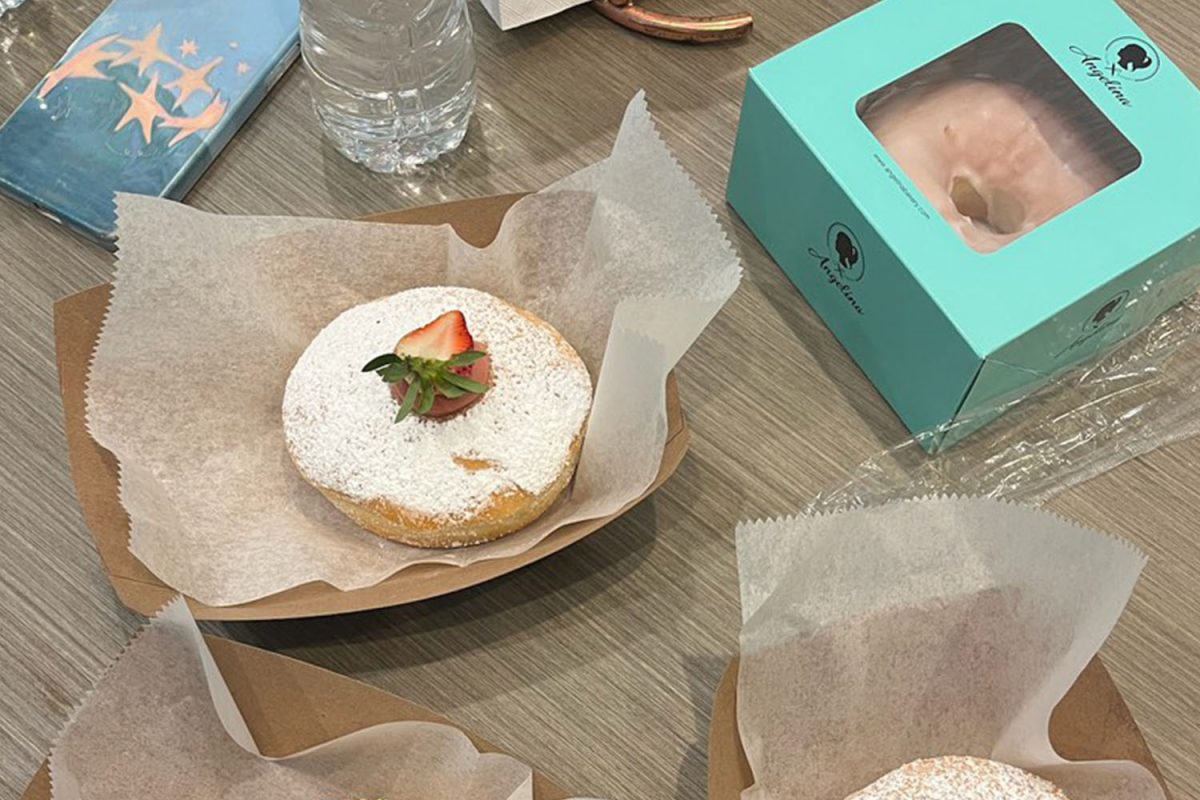At Carlmont, many students have decided to put in the extra work required to meet the high academic standards of Advanced Placement (AP) classes. Frequently, students find completing the coursework required by AP classes, in conjunction with the many different activities that students are involved in outside of class, to be a daunting task.
Take for example junior Pareesa Darafshi. She takes a very challenging course load of AP Chemistry, AP United States History, And AP English, AG Calculus, AS physics, Spanish 3 Honors.
“With studying for tests and large amounts of homework, the only free time I ever really have is on the weekends. I mean, I still hang out with friends and things like that, but it just usually has to be at night or after I’ve gotten tired of working for hours.”
Darafshi isn’t alone. She is only one of the many ambitious students at Carlmont who find themselves under a significant amount of pressure from their school workload, causing them to prioritize their time to allow for hobbies, sports, friends and maybe a few hours of sleep too.
When looking to the future, students may want to take up to six or seven advanced academic subjects, however, they should keep in mind the amount of work they will have to do in and out of school. Although individual assignments may seem insignificant, when combined with other assignments, the workload may become overwhelming for some.
Junior Jen Anthony said, “I take three APs and so far it has been doable. The workload is not terrible if you learn to manage your time, which I have slowly been getting better at. Some of my AP classes require more work than others, but three is probably my maximum.”
“This year I’m taking six AP courses and it’s actually not that bad. I think the main thing to be good at when you decide to take AP courses is time management so that homework doesn’t pile up,” said junior Nico Camerino.
Given the extensive time commitments involved, why do students take AP classes if they are so much work?
Anthony said, “I need challenge in my courses and I, of course, need the classes to have a good transcript for colleges to see. Although I may not get an A in them, colleges still see that they are the more difficult course and that you are challenging yourself.”
“I take AP courses because… I think they provide a good academic environment,” said Sandip Srinivas. “I get to take classes with a lot of smart people and learn things from them as well.”
To manage AP courses, time must be managed as well. Whether that means waking up early to break up your homework or putting all distractions away the second you get home, AP courses require a commitment of time and energy, although it varies from person to person
Srinivas said, “AP course loads are sometimes rather large, but it’s typically manageable as long as you have interest in the course and the things about which you’re learning.”
“I have a truncated amount of time for every task,” said Govani. “I prioritize solely based on necessity and complete tasks based on how soon the deadline is.”
Darafshi, along with many other juniors, takes AP Language and Composition, which is instructed by Martin Turkis and Sarah Cane.
Cane said, “Students will learn to write authentically voiced analysis, argument and synthesis. They’ll learn basics in philosophy and logic and will work on developing maturity and effectiveness as thinkers and writers.”
“It’s not necessarily hard, but some of the prompts we do are challenging to interpret and write about. With annotations and an essay every once in a while, it probably isn’t more than 2-3 hours of homework per week,” said junior Neeshae Wain.
According to Turkis, this course is “aimed to drive students towards getting an intellectual life and to develop a critical disposition — the ability to examine one’s own assumptions and predispositions as well as those of others.”
If students plan to stay on the advanced track, their next English class will be AP Literature and Composition. It is offered to seniors and is taught by Joseph Hill, Carole Pierce and Victoria Nilson.
Hill said, “when seniors wait until the last minute to begin and complete a long-term project, stay awake all night, and come to school the next day announcing to anyone who will listen that the course is far too much work or unbalanced or evil, they seriously and unfairly misrepresent the course (and compromise their own integrity).”
One advanced social studies class is AP Modern European history (AP Euro). It is a new addition to Carlmont’s curriculum, offered to sophomores only. The class covers history from the Dark Ages to present-day Europe.
“We get a lot of work for that class, but it’s understandable because our teacher is trying to prepare us for the AP test. I would say that it is worth taking if a student is diligent and willing to take the time every night to complete the homework and study for the quizzes we have two time a week,” said Micaela Lopez.
While it is considered to be less work than AP United States History (APUSH), it is still a large jump from freshmen history.
Junior Pareesa Darafshi said “It’s a lot of work if you put it off until the very last day, so the amount of homework you have really depends on how you manage your time.”
APUSH is well known for its large workload, and is taught by David Gomez and Jarrod Harrison.
“I think one of the hardest AP’s is APUSH because there’s a lot of work, and the tests really test your understanding of the content.” said junior Nico Camerino.
An opportunity to take an AP class as an elective is fulfilled by AP psychology, which is a unique course offered to grades 11-12 and is taught by Michelle McKee and Kristen Davis-Karnicki.
“I was very surprised with the amount of work it came with taking AP Psych,” said senior Sydney Levine. “It’s a lot of busy work and can get very tiring. I wasn’t aware of how much homework I would have going into the class.”
Often thought of as on of the easier AP courses offered at Carlmont, Levine was not the only student who was surprised by the amount of work this class assigns.
For students who prefer science-centered courses, AP Biology is a favorable science class for juniors and seniors.
“[One of the] hardest AP courses in my opinion [is] AP biology,” said Bita Shahrvini.
Meanwhile, Darafshi plans on taking an equally difficult schedule for her senior year consisting of multiple AP and advanced courses.
Overall, Carlmont offers a wide range of AP courses that are a great way to challenge oneself and develop time management skills that will be useful throughout one’s academic career.










